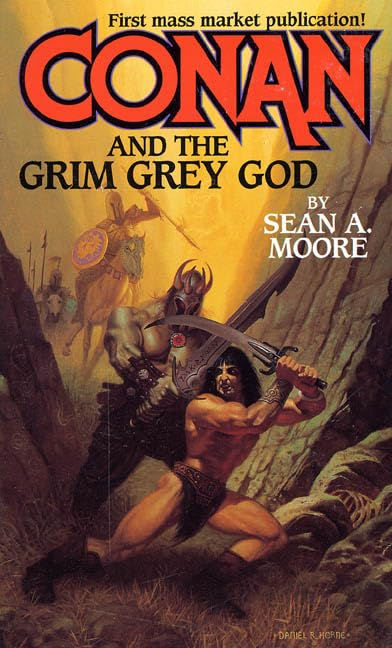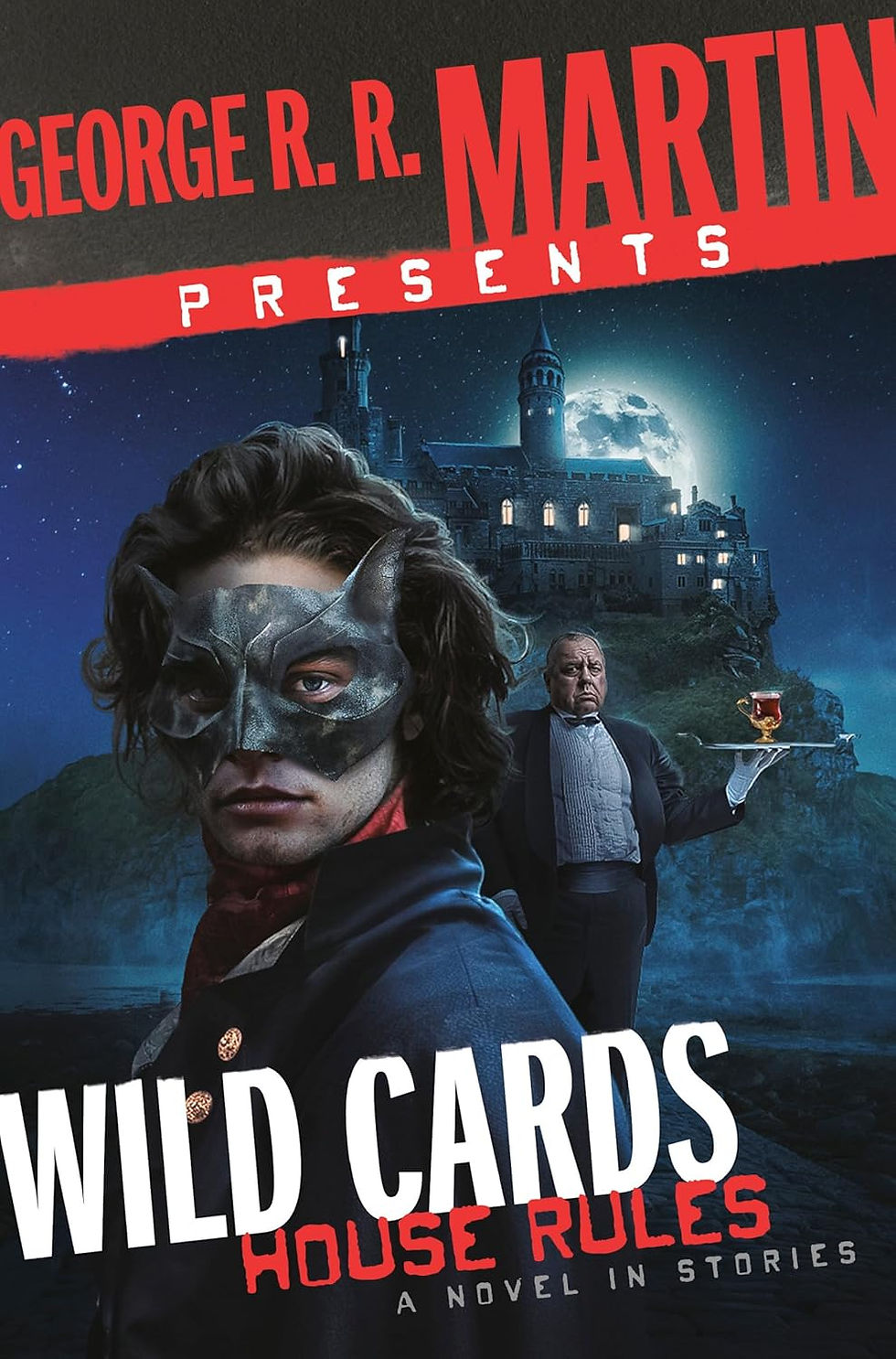The Adventure That Almost Was
- cyborgcaveman
- Feb 17, 2023
- 3 min read
Updated: Apr 11, 2023
Thongor Against the Gods
by Lin Carter Sequel to Thongor and the Dragon City, the barbarian hero's next adventure has all the right components-- they just don't quite come together. Everything makes sense as far as getting from the first chapter to the last. It all makes narrative sense. Yet the whole is somehow inexplicably less than the sum of its parts. The problem is that the story shies away from all my best moments. The question is, if Thongor Against the Gods is so bad then why did I devour it like a staving man?
After the overthrow of the cult of Yamath the Fire God, and the conquest of the “Dragon City” of the previous book, Thongor’s enemies conspire to throw his burgeoning little empire into disarray. Zandar Zan, greatest thief in all Lemuria, is retained to kidnap Sumia, Thongor's wife, and yet he seems inexplicably incompetent. He succeeds in kidnapping her just long enough to kick the plot in motion. She escapes only to seemingly plunge to her death. Afterward, Zandar’s only purpose is to take possession of Thongor’s airboat until the author decides Thongor needs it again. Zandar might have made an intriguing recurring character, even an ally (which the story seemed to move toward until he was once again shown to be incompetent) but it is probably for the best that we will never see him again.
It’s a little like watching an offbeat independent crime film instead of your usual hitman flick. You know that many of the elements are going to be the same, but you also know the plot is going to veer off in weird directions or focus on characters that normally remain further in the background. Maybe there will be a few intense scenes or a moment of shocking violence, but most of the time you aren’t 100 percent sure what you’re watching—or possibly even why.
The whole book is like that, which sounds needlessly unkind. Carter wasn’t a bad writer, far from it. The fun and his love of the genre always shines through. He was also an accomplished editor, but that might have convinced him he didn’t need an editor of his own. Aside from the somewhat meandering narrative, one must ask how often do the adjectives great, mighty, fierce, savage, and barbaric need to appear? There is a creeping sameness to the descriptions or an excess of description overall, three words where one would do. But who am I to question to the purple, turgidly pulsing prose of the mighty author?

Just as there were no dragons in Thongor and the Dragon City, Thongor fights no actual gods in Thongor Against the Gods. When you read that title and see that iconic Frank Frazetta cover, the book you are imagining is not the book that you will read. I was envisioning Thongor astride the mountaintop, starsword in hand, crossing blades with Sliddith the Lord of Blood. In theory, Thongor fights the evil gods of Tsargol and the Black City of Zaar by fighting the minions of said deities.
What actually happens, spoilers ahead, such as they are: Thongor chases after Zandar Zan in his airship. Thongor gets stuck on a mountainside. Thongor tames a triceratops-like beast called a zamph. Thongor rescues a nomad chieftain from torture. Thongor pops up in the nick of time for the big battle in the final chapter. That's about it.
The narrative seemed to finally be building to an epic battle between Thongor and a giant elemental summoned from Hell by the necromancer Adamancus. Unfortunately, yet again the story swerves away from satisfaction at the last moment. Thongor does arrive in dramatic fashion, crashing his airship through the wall of the necromancer's castle. This sudden interruption causes Adamancus to step outside of his protective magic circle. No longer shielded from the spirit he has summoned, Adamancus is seized by the elemental and both disappear before the battle is ever joined.
The most surprising and satisfying revelation is that the genuinely repellent Thalaba the Destroyer, a twisted torturer afflicted with a kind of fungoid leprosy and the most memorable for from the previous book, was a necromancer of Zaar. Less surprising but another nice touch is the disclosure by Adamancus that the wizards of Zaar are the pupils of the evil Dragon Kings defeated in Thongor’s first adventure. Those two small details create greater continuity with the larger Thongor saga than the remainder of the action.
It’s those little touches that make it all worth it. That might not seem like much, but when you’ve exhausted all your Conan and John Carter, this combination of the two will suffice. If nothing else, maybe it will fire the imaginations of the armchair quarterbacks among us to write adventures of our own.



Comments